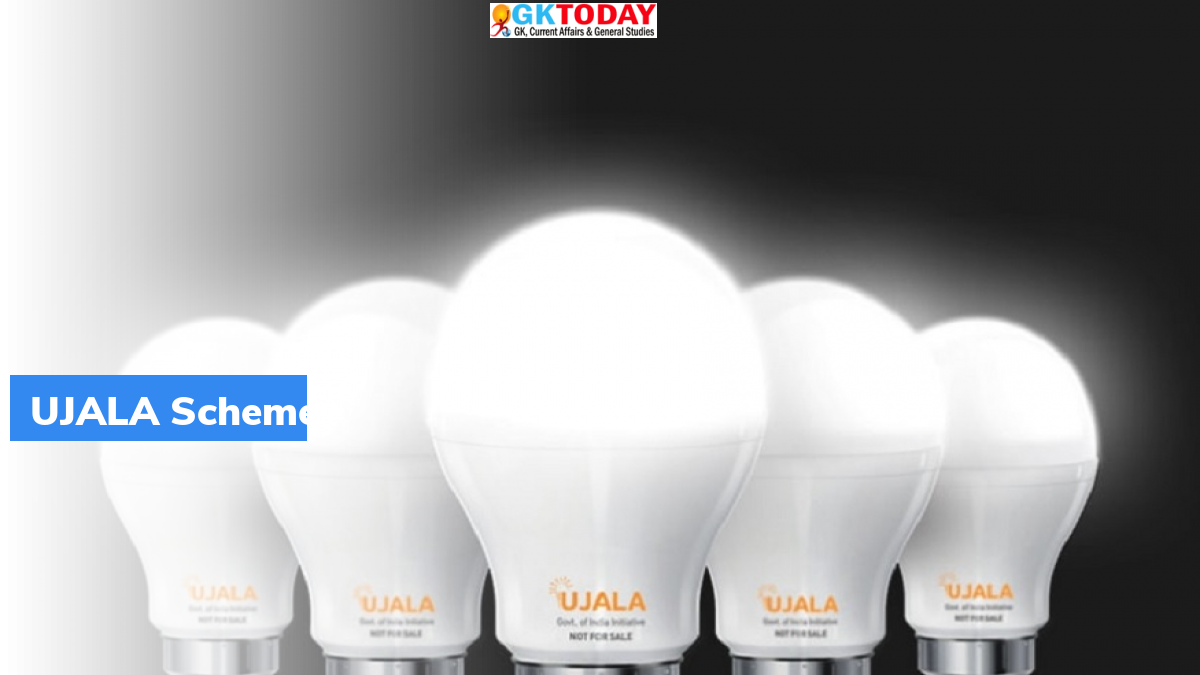10 Years of UJALA Scheme
The UJALA scheme, launched on 5th January 2015, has transformed India’s approach to energy efficiency. This initiative, initially known as the Domestic Efficient Lighting Programme, aimed to make affordable LED lighting accessible to millions of households. As of January 2025, over 36 crore LED bulbs have been distributed, marking milestone in energy conservation and economic savings for Indian families.
Background of UJALA
The UJALA scheme arose from the need to reduce high electricity costs associated with traditional lighting. Traditional incandescent and compact fluorescent lamps consumed excessive energy, leading to substantial electricity bills. The introduction of LED technology provided a viable solution, offering energy savings and lower operational costs.
Economic Impact of UJALA
The UJALA scheme has made LED bulbs available at drastically reduced prices. Consumers can purchase LED bulbs for Rs 70, tube lights for Rs 220, and energy-efficient fans for Rs 1110. These prices reflect a competitive bidding process that ensures affordability while covering costs associated with distribution and maintenance. The annual operating cost of an LED bulb is only Rs 12, compared to Rs 40 for a CFL and Rs 108 for an incandescent lamp, showcasing the economic advantages of LEDs.
Environmental Benefits
The UJALA scheme has contributed to reducing India’s carbon footprint. By distributing energy-efficient LED bulbs, the initiative has helped lower national electricity consumption and greenhouse gas emissions. As a result, the programme aligns with India’s broader climate change mitigation goals and enhances environmental sustainability.
Achievements of UJALA
Since its inception, UJALA has achieved remarkable milestones. Over 36.87 crore LED bulbs have been distributed, making it the world’s largest zero-subsidy domestic lighting programme. This initiative has transformed the lighting market in India, leading to substantial savings on household electricity bills and improved quality of life for millions of citizens.
Street Lighting National Programme (SLNP)
Launched concurrently with UJALA, the Street Lighting National Programme (SLNP) aims to replace conventional streetlights with energy-efficient LED alternatives. EESL oversees this initiative, collaborating with local governments to implement the programme across urban and rural areas. As of January 2025, over 1.34 crore LED streetlights have been installed, resulting in energy savings and reduced operational costs for municipalities.
- EESL – Energy Efficiency Services Limited, implementing UJALA.
- SLNP – Street Lighting National Programme for public LED streetlight installation.
- CO₂ reduction – 6.2 million tonnes annually from SLNP.
- LED lifespan – LEDs last longer than traditional bulbs, reducing waste.
- Market transformation – UJALA has increased LED market share from less than 1% in 2013 to over 40% in 2025.
Future Prospects of Energy Efficiency in India
The success of the UJALA scheme and the SLNP marks the potential for further advancements in energy efficiency across India. Continued government support and public awareness campaigns will be crucial in sustaining this momentum. The integration of smart technologies and innovative business models promises to enhance the effectiveness of energy-saving initiatives in the coming years.
Month: Current Affairs - January, 2025
Category: Government Schemes Current Affairs







